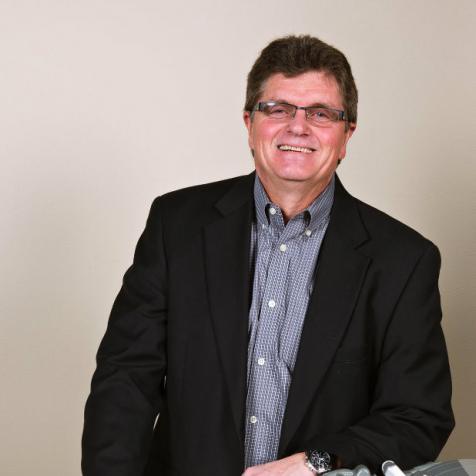
UQM Technologies
By Eric Peterson | Feb 17, 2017
Company Details
Location
Longmont, Colorado
Founded
1967
Ownership Type
Public
Employees
50
Products
Electric propulsion systems
Longmont, Colorado
Founded: 1967
Publicly traded (NYSE MKT: UQM)
Employees: 50
Industry: Electronics & Aerospace
Products: Electric propulsion systems
President and CEO Joe Mitchell sees a rosy future for his cutting-edge supplier to electric vehicle manufacturers.
John Gould started Unique Mobility a half-century ago and developed the Electrek, a battery-powered electric car, in the 1970s. The patented technology behind the Electrek became the backbone of the company that was later renamed UQM Technologies in the 1980s as it supplied such blue-chip customers as Caterpillar, John Deere, and General Motors with electric propulsion systems.

With a background in electric vehicles for Ford Motor Company and a Ford-DaimlerChrysler joint venture, Mitchell joined UQM in 2012 and took the reins as CEO in 2015. "It's amazing the company has been around for 50 years," says Mitchell. "It started well ahead of its time in electrification. When the oil crisis started in the late '70s, they started talking about electrics."
UQM was a leader in innovation in the fiel ofd electric vehicles in the ensuing years, but the market didn't take off as expected, he adds. "Through the '80s and '90s, there was always talk about electric vehicles. What held it back was always battery technology."
But with the emergence of Tesla Motors, what a difference a decade makes. "In the last five years, battery technology has advanced significantly," says Mitchell.
Supplying turnkey motor and controller systems for electric, hybrid, and fuel-cell vehicles, UQM's market has grown in tandem with the innovation. "We are ramping up, volume-wise," says Mitchell. The electric market has emerged as the top segment.

UQM has excess capacity after key customer Coda Automotive went bankrupt in 2013. While Coda was focused on the consumer market, UQM has since pivoted to focus on the commercial market and make electric propulsion systems for large trucks and buses. "The engineering is done," says Mitchell. "We have significant open capacity right now." He says the forecast called for about 30,000 systems for Coda, but the output for 2017 is projected in the "low thousands."
In 2016, revenue topped $5 million and UQM is poised to grow. "Our forecasts are significantly higher," says Mitchell. "Our customers are going from prototype to production." Electric-bus manufacturer Proterra is now the "flagship customer," he adds. "They are ramping up significantly."
The company's state-of-the-art plant is TS16949-certified and has other key qualifications. "We build our own motors from winding to assembly," says Mitchell.
Mitchell says UQM's prime differentiator is power density. "We're able to get more power out or a smaller package," he explains. Another prime feature: UQM's systems efficiency are about 95 percent versus competitors in the "low 90s."

UQM has also partnered with Meritor, the dominant U.S. supplier of commercial axles, to develop an e-axle. "The axle actually becomes a transmission," says Mitchell. "We see the potential to be huge there."
Beyond supplying OEMs, UQM also offers contract manufacturing and engineering services. "One of our advantages is we have our own machine shop with a lot of capacity," he adds. "We can turn low-volume parts fairly quickly."
The move into the commercial market is "very important" for long-term growth, says Mitchell. "You can definitely see a path to profitability."
And that path runs straight through Asia. "The biggest market is China," he says, citing a market that's "100 times" bigger than that in the U.S. "It's a big focus for us right now." UQM has a contract to supply a customer in China and is "looking very hard" for a manufacturer to partner with to fulfill the orders.

Challenges: "The domestic market, although it's growing, it's still in its infant stage," says Mitchell. The challenge "is weathering that until it grows."
Opportunities: The prime opportunity is China, says Mitchell. With an increasing emphasis on improving air quality, "China's been incentivized far more than the U.S.," he explains.
Improving battery technology represents another opportunity. "Battery costs have come down," Mitchell adds. "For municipalities, the economics make sense to convert their entire fleets." He cites Proterra's recent sale of 73 buses to King County Metro Transit in the Seattle area.
Needs: "The biggest need is for the market to continue to grow," says Mitchell. "We're only going to sell as many drives as they sell electric vehicles."
A second need: "Finding a strategic partner in China. It's very difficult for a small company to go it alone."

